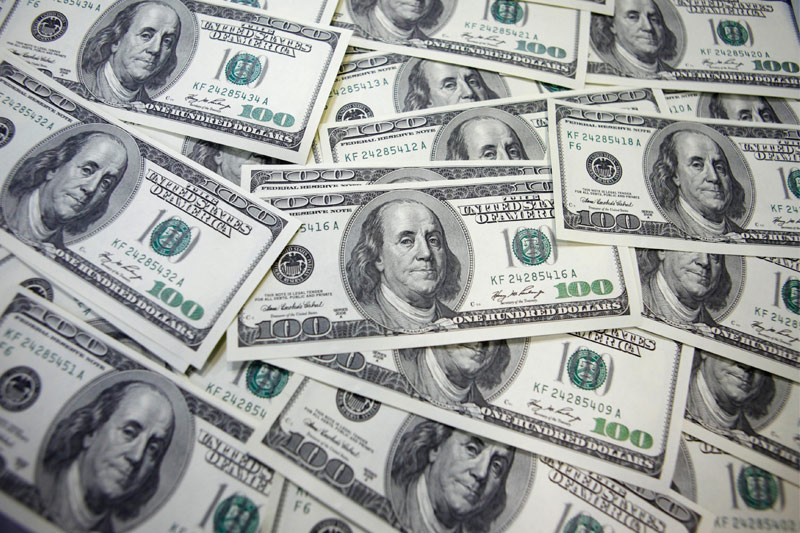Investing.com - The dollar weakened against most major currencies on Monday after a key Federal Reserve official said over the weekend that rate hikes may come later rather than sooner if the global economy continues to flounder.
In U.S. trading on Monday, EUR/USD was up 0.56% at 1.2697.
The dollar has firmed against the euro and most other currencies in recent sessions on expectations for U.S. monetary policy to diverge with Europe and Asia, and while many feel that's still the case, uncertainty over the timing weakened the dollar on Monday.
While the U.S. is seen closing its monthly bond-buying programs this month and hiking interest rates in 2015, expectations that the Federal Reserve may take its time when tightening policy next year began to build on Monday, especially in wake of dovish comments out of the U.S. central bank.
"If foreign growth is weaker than anticipated, the consequences for the U.S. economy could lead the Fed to remove accommodation more slowly than otherwise," Federal Reserve Vice Chair Stanley Fischer said in prepared remarks of a speech he delivered at the annual International Monetary Fund/World Bank meeting over the weekend.
Bottom fishers also gave the single currency an edge over the dollar, though gains were seen as limited on concerns the European economy faces building headwinds, which may require fresh stimulus measures from the European Central Bank.
Last week, data revealed that Germany exports fell 5.8% in August.
The dollar was down against the yen, with USD/JPY down 0.51% at 107.09, and down against the Swiss franc, with USD/CHF down 0.53% at 0.9523.
In Japan on Friday, the minutes of the Bank of Japan's Sept. 3-4 policy meeting showed that some members voiced concerns over possible adverse effects of additional stimulus measures, which continued to support the yen on Monday.
These concerns raised the prospect of the first policy split vote under BoJ Governor Haruhiko Kuroda's mandate, even as the central bank head continues to emphasize his readiness to take fresh action to meet the BOJ's 2% inflation target, if needed.
On Tuesday, the BoJ left monetary policy unchanged at its policy meeting, but acknowledged that declining domestic demand as a result of a sales tax increase in April was leading to economic weakness.
The greenback was flat against the pound, with GBP/USD down 0.01% at 1.6074.
The dollar was mixed against its cousins in Canada, Australia and New Zealand, with USD/CAD up 0.04% at 1.1200, AUD/USD up 0.83% at 0.8759 and NZD/USD up 0.78% at 0.7884.
The dollar index, which tracks the performance of the greenback versus a basket of six other major currencies, was down 0.17% at 85.52.
